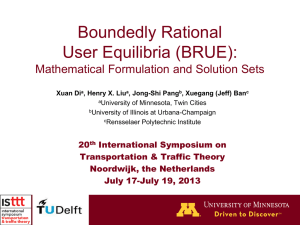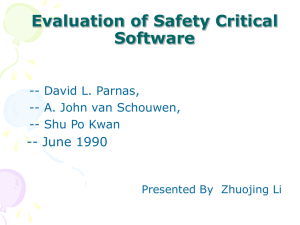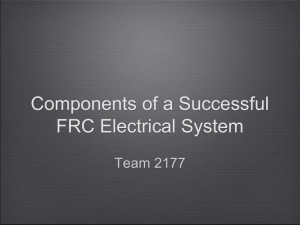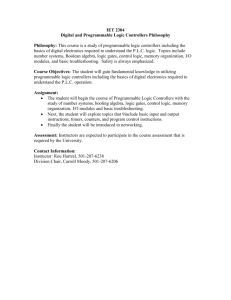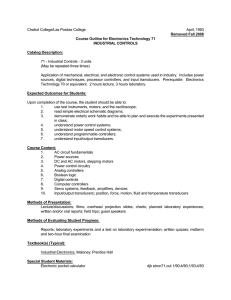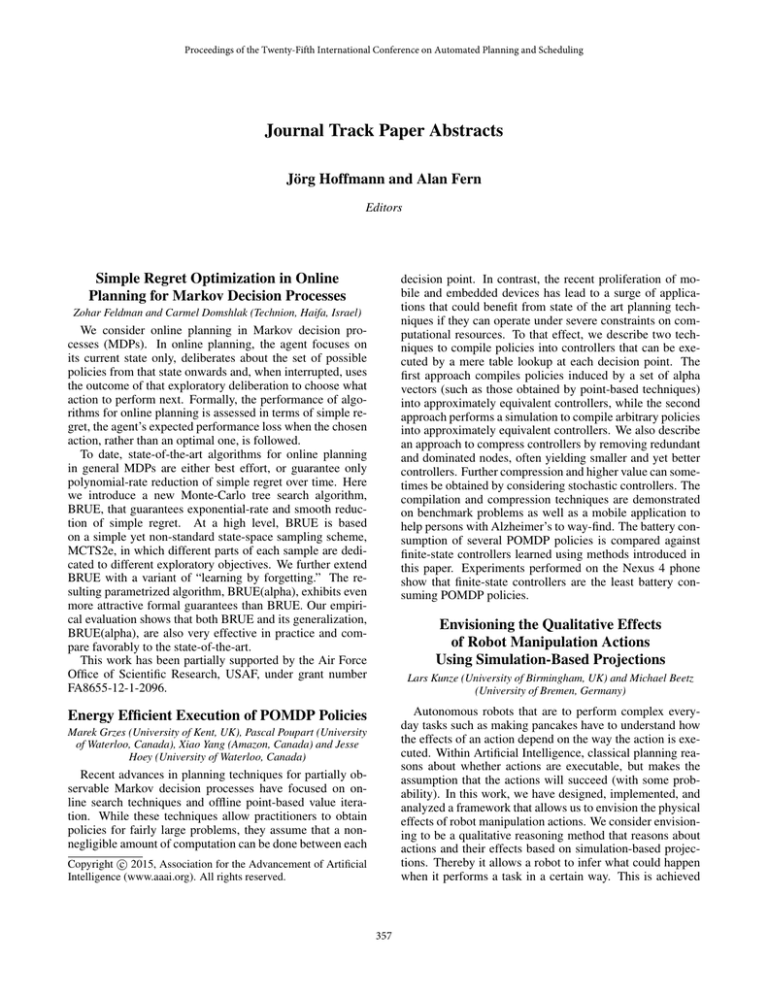
Proceedings of the Twenty-Fifth International Conference on Automated Planning and Scheduling
Journal Track Paper Abstracts
Jörg Hoffmann and Alan Fern
Editors
Simple Regret Optimization in Online
Planning for Markov Decision Processes
decision point. In contrast, the recent proliferation of mobile and embedded devices has lead to a surge of applications that could benefit from state of the art planning techniques if they can operate under severe constraints on computational resources. To that effect, we describe two techniques to compile policies into controllers that can be executed by a mere table lookup at each decision point. The
first approach compiles policies induced by a set of alpha
vectors (such as those obtained by point-based techniques)
into approximately equivalent controllers, while the second
approach performs a simulation to compile arbitrary policies
into approximately equivalent controllers. We also describe
an approach to compress controllers by removing redundant
and dominated nodes, often yielding smaller and yet better
controllers. Further compression and higher value can sometimes be obtained by considering stochastic controllers. The
compilation and compression techniques are demonstrated
on benchmark problems as well as a mobile application to
help persons with Alzheimer’s to way-find. The battery consumption of several POMDP policies is compared against
finite-state controllers learned using methods introduced in
this paper. Experiments performed on the Nexus 4 phone
show that finite-state controllers are the least battery consuming POMDP policies.
Zohar Feldman and Carmel Domshlak (Technion, Haifa, Israel)
We consider online planning in Markov decision processes (MDPs). In online planning, the agent focuses on
its current state only, deliberates about the set of possible
policies from that state onwards and, when interrupted, uses
the outcome of that exploratory deliberation to choose what
action to perform next. Formally, the performance of algorithms for online planning is assessed in terms of simple regret, the agent’s expected performance loss when the chosen
action, rather than an optimal one, is followed.
To date, state-of-the-art algorithms for online planning
in general MDPs are either best effort, or guarantee only
polynomial-rate reduction of simple regret over time. Here
we introduce a new Monte-Carlo tree search algorithm,
BRUE, that guarantees exponential-rate and smooth reduction of simple regret. At a high level, BRUE is based
on a simple yet non-standard state-space sampling scheme,
MCTS2e, in which different parts of each sample are dedicated to different exploratory objectives. We further extend
BRUE with a variant of “learning by forgetting.” The resulting parametrized algorithm, BRUE(alpha), exhibits even
more attractive formal guarantees than BRUE. Our empirical evaluation shows that both BRUE and its generalization,
BRUE(alpha), are also very effective in practice and compare favorably to the state-of-the-art.
This work has been partially supported by the Air Force
Office of Scientific Research, USAF, under grant number
FA8655-12-1-2096.
Envisioning the Qualitative Effects
of Robot Manipulation Actions
Using Simulation-Based Projections
Lars Kunze (University of Birmingham, UK) and Michael Beetz
(University of Bremen, Germany)
Autonomous robots that are to perform complex everyday tasks such as making pancakes have to understand how
the effects of an action depend on the way the action is executed. Within Artificial Intelligence, classical planning reasons about whether actions are executable, but makes the
assumption that the actions will succeed (with some probability). In this work, we have designed, implemented, and
analyzed a framework that allows us to envision the physical
effects of robot manipulation actions. We consider envisioning to be a qualitative reasoning method that reasons about
actions and their effects based on simulation-based projections. Thereby it allows a robot to infer what could happen
when it performs a task in a certain way. This is achieved
Energy Efficient Execution of POMDP Policies
Marek Grzes (University of Kent, UK), Pascal Poupart (University
of Waterloo, Canada), Xiao Yang (Amazon, Canada) and Jesse
Hoey (University of Waterloo, Canada)
Recent advances in planning techniques for partially observable Markov decision processes have focused on online search techniques and offline point-based value iteration. While these techniques allow practitioners to obtain
policies for fairly large problems, they assume that a nonnegligible amount of computation can be done between each
c 2015, Association for the Advancement of Artificial
Copyright Intelligence (www.aaai.org). All rights reserved.
357
by translating a qualitative physics problem into a parameterized simulation problem; performing a detailed physicsbased simulation of a robot plan; logging the state evolution
into appropriate data structures; and then translating these
sub-symbolic data structures into interval-based first-order
symbolic, qualitative representations, called timelines. The
result of the envisioning is a set of detailed narratives represented by timelines which are then used to infer answers
to qualitative reasoning problems. By envisioning the outcome of actions before committing to them, a robot is able
to reason about physical phenomena and can therefore prevent itself from ending up in unwanted situations. Using this
approach, robots can perform manipulation tasks more efficiently, robustly, and flexibly, and they can even successfully
accomplish previously unknown variations of tasks.
This work has been supported by the EU FP7 project
RoboHow (grant number 288533) and by the EU FP7
project STRANDS (grant number 600623).
Distributed Heuristic Forward
Search for Multi-agent Planning
Raz Nissim (Yahoo Labs, Israel) and Ronen Brafman (Ben-Gurion
University, Israel)
This paper deals with the problem of classical planning
for multiple cooperative agents who have private information about their local state and capabilities they do not want
to reveal. Two main approaches have recently been proposed to solve this type of problem – one is based on reduction to distributed constraint satisfaction, and the other on
partial-order planning techniques. In classical single-agent
planning, constraint-based and partial-order planning techniques are currently dominated by heuristic forward search.
The question arises whether it is possible to formulate a
distributed heuristic forward search algorithm for privacypreserving classical multi-agent planning. Our work provides a positive answer to this question in the form of a general approach to distributed state-space search in which each
agent performs only the part of the state expansion relevant
to it. The resulting algorithms are simple and efficient –
outperforming previous algorithms by orders of magnitude
– while offering similar flexibility to that of forward-search
algorithms for single-agent planning. Furthermore, one particular variant of our general approach yields a distributed
version of the A* algorithm that is the first cost-optimal distributed algorithm for privacy-preserving planning.
The authors were supported in part by ISF grant 933/13
and the Lynn and William Frankel Center for Computer Science.
358

